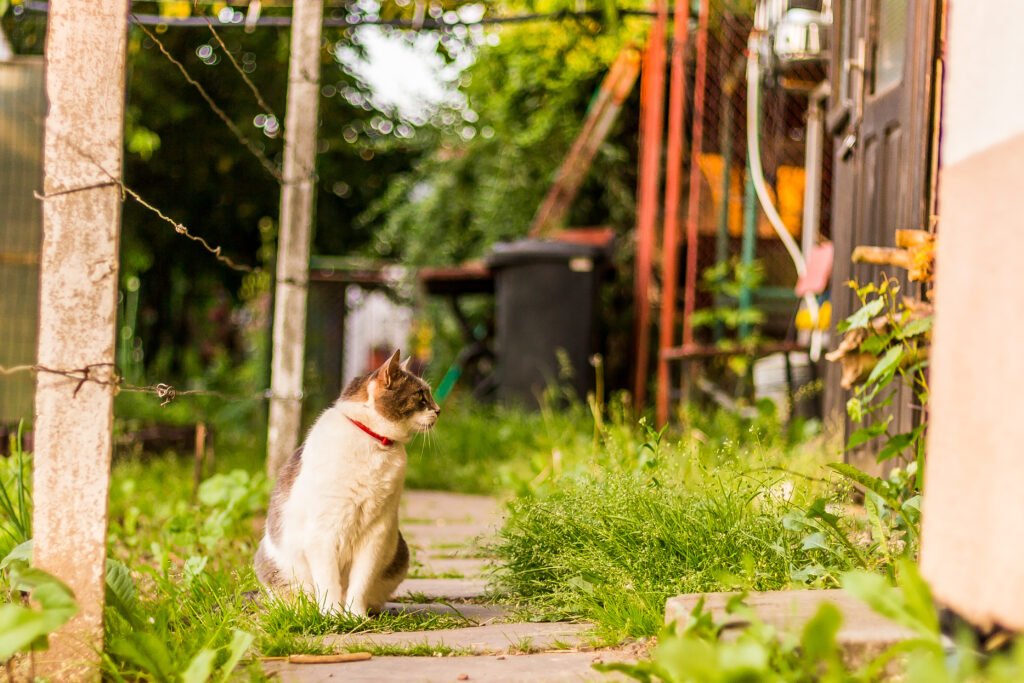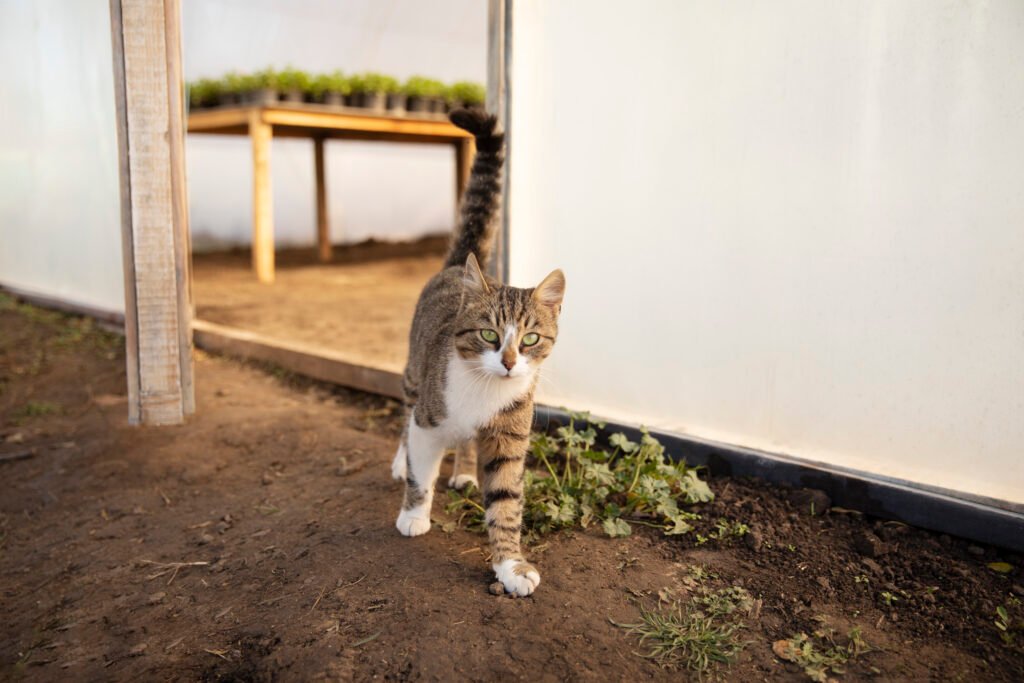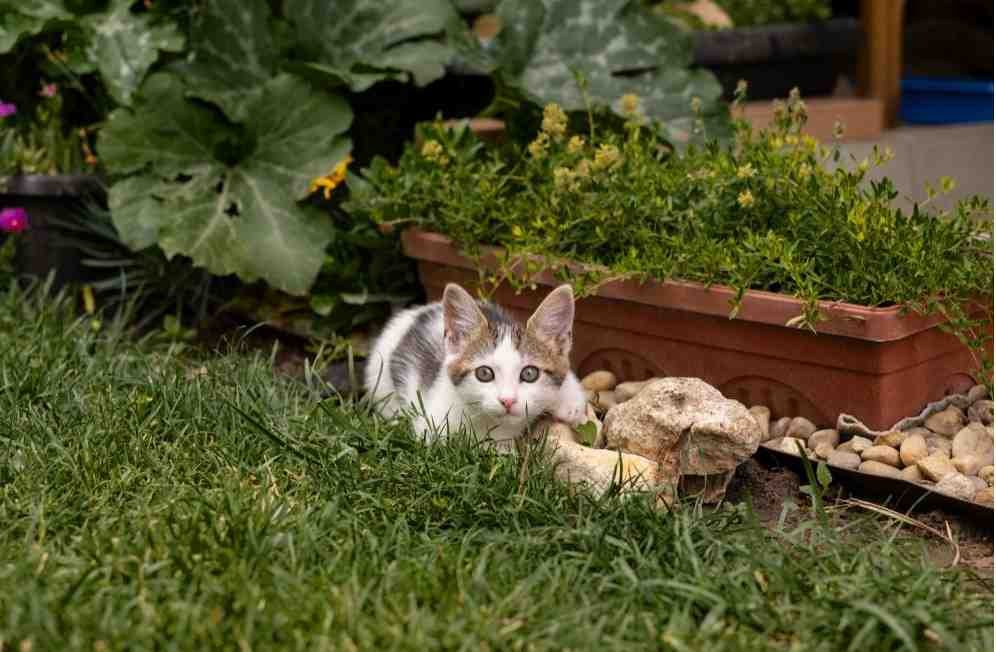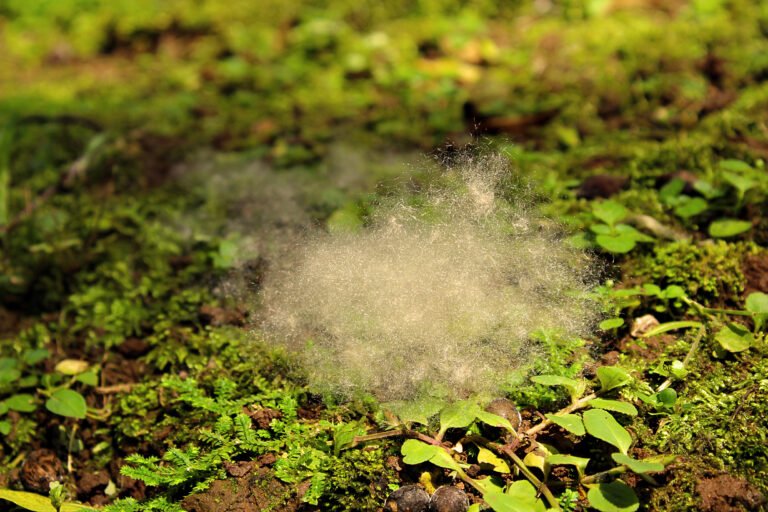How To Keep Cats Out of Your Yard
How-to-keep-cats-out-of-your-yard If the cats in your community are causing stress to you or your pets, it is important first to determine who cares for them and connect them with local trap-neuter-return (TNR) sources. Knowing how to keep cats out of your yard is quite important. As eliminating outdoor cats is not an effective long-term solution, as more cats will enter the area searching for handouts provided by caretakers or other food sources.
Sterilization is the primary method for reducing nuisance feline behavior and decreasing roaming cats over time.
If you need an immediate solution to your issue, consider these low-tech and high-tech strategies to convey a “no trespassing” message to cats.
Why Keep Cats Out of Gardens?
Stray cats can create a mess in your plants and gardens by mistaking open soil for litter boxes. Discovering cat litter in rows of carrots or lettuce can be an unpleasant surprise and may also pose a health risk.
While manure from rabbits and chickens can be composted safely for food gardens, dog and cat waste may contain parasites and bacteria harmful to crops. This alone might be reason enough to deter cats from the garden.
Cats frequenting your property can also damage plants or disrupt local wildlife like birds, frogs, and beneficial insects that help with pest control.
Indoor vs. Outdoor Cats
Historically, cats were outdoor animals that helped control rodents on farms and in homes. However, the invention of cat litter marked a shift toward indoor cats. Nonetheless, outdoor cats remain common in these forms:
- Pets with homes: Some pet owners allow their cats to roam outdoors.
- Stray cats: Socialized cats that live in communities but don’t have a specific home.
- Feral cats: A group of unsocialized cats without a specific home, often roaming neighborhoods and sometimes using gardens and yards as litter boxes.
Strategies on How To Keep Cats Out of Your Yard
If you’re fed up with unwanted cats living on your property, do not resort to violence! There are many ways and tips on how to keep cats out of your yard without causing harm to the creatures.
Eliminate Food Sources
What is it that draws cats from the neighborhood to your property at all? They could be eating your food without even realizing that you are doing it. They may be scurrying around in your trash bins as raccoons do or hunt for birds on your property. When you get rid of food sources, you may also eliminate the cats.
Cover trash containers and put a lid on the container using bungee cords. Please do not leave your pet’s food outside because neighbors’ cats could be able to help themselves.
If you have many birds in your backyard with bird baths or bird feeders, stop the activity until you check the cat’s situation.
Block Access To Hidden Holes
Cats are attracted to cozy, dark areas where they can hide from predators and humans.
They often hide within crawlspaces, beneath decks, and in similar protected, unoccupied areas. Set up chicken wire or lattice to block felines’ entry into the hiding places. Be sure that the beach is clean first so that no kittens or cats get trapped in the area.
Use Citrus Peels and Coffee Grounds
If spraying isn’t working If that doesn’t work, here’s a second idea on how to keep feral cats from your backyard:
- Lime, lemon, and peels, similar to citrus oil, make excellent cat repellents. Cut them into smaller pieces and place them in your garden. If you don’t consume much citrus, restrict the use of citrus peels to an area that is troublesome, like a spot where cats are known to leave “presents.”
- Coffee grounds can irritate cats’ delicate noses. It is necessary to apply grounds of coffee every week. Put a tiny layer over your yard or mix it with the soil. Be aware, do not heap them on top of each other as coffee may cause poisoning with caffeine in cats that can result in a rise in blood pressure and nausea, as well as heart attack and even death.
Sprinklers That Are Activated By Motion
Many TNR groups have reported the success of together motion-activated sprinklers. They are particularly effective for large areas. This device creates an infrared spectrum that covers an average backyard linked to the pipe.
When a creature enters the area, it shoots an explosion of water. The water doesn’t cause the cats to get in the water. However, it can make them feel scared. Sooner or later, they will be able to recognize and avoid the field’s boundaries.
Certain of these devices require a water source, while others require reservoirs. They aren’t appropriate for use during colder weather because the water inside the hose can freeze. However, it generally takes a couple of months for cats to get the message. Then, you can remove the device, and your cats will be able to stay away from the region.

Get Rid of What Attracts Cats to Your Yard
Cats may be attracted to a particular yard or area due to the resources there. If the resources are plentiful and readily available to them, they may start coming around more frequently.
The things that draw cats to your yard are the following:
- Pet food When you feed your pet outside, clean up the dishes once they have finished or overnight or change their feeding location to the inside of the home.
- Food for people: Clean up your grill when you’re done cooking. Make sure you don’t take the leftover food from your picnic outside.
- Trash cans: Lock trash can lids to ensure that cats don’t get attracted by the free food available in them.
- Hidey holes: Cover holes in your home’s or shed’s foundations to prevent kittens from transforming this structure into a home. However, before you board the gaps, ensure you don’t trap any cats in them or keep the kittens away from their mama.
- A dirty yard: Keep your yard as tidy as possible by picking up the leaves and removing the brush (or hiring a leaf removal service) to stop small rodents from turning into cats’ magnets.
- Birds: Put your bird feeders in an open space where cats aren’t able to stalk and disturb the birds that are there. Consider putting down the bird feeders until you’ve got your cat’s problem under control.
- Catnip: It may sound obvious, given the reputation of the plant. However, you shouldn’t have any on your property. Some cats are intolerant to it. However, many cats are not able to resist.
Clean the Garden
Cats are territorial animals. They repeatedly mark their territory with their scent and return to the same area. If you take the time to thoroughly clean areas where cats spray with the garden hose and soap, you may interrupt the cycle and stop the cats from coming back.
It is also possible to consider cleaning with an enzyme specifically designed for cat urine and outdoor use to break out strong smells.
While weeding your garden, take down the bird and pet feeders in your backyard, remove the brush and wood piles, and cover the open compost piles.
These areas can attract rodents; however, they can also attract hungry stray cats looking for an opportunity to eat. Blocking crawl spaces beneath your patio, deck, and even inside your house can be beneficial, but inspect these spaces before closing them off to warrant that no animals are hidden within.
Make Lounging and Digging Spots Unpleasant
If cats live in your home’s yard, they are likely to be fond of digging in garden beds or vegetable gardens and relaxing on warm, shady surfaces such as sun-baked asphalt driveways. If your neighborhood cat’s preferred spot to hang out is in your yard, There are ways to make the areas unpleasant so that cats don’t enjoy them anymore.
The excellent ways to protect your garden from cats and other lounging areas include:
- Carpet runners: Put carpet runners made of plastic with the spike side facing upwards in your flower beds on the roof of your vehicle or any other place where cats love a place to relax. The spikes aren’t likely to hurt cats but can cause them to be uncomfortable. If you are okay with the appearance of carpet runners in your yard, cover it with a thin layer of mulch or soil.
- CatScat mats: They feature long, flexible plastic spikes that are a nuisance to cats but will not cause harm to them. Like carpet runners, place the mat on any surface you’ve seen cats lying around or digging.
- Chicken wire covers the ground around your garden with chicken wire to stop digging. It is important to roll the wire’s sharp edges under to warrant that the wire won’t cut animals and cats.
- Plastic netting: The plastic bird netting is a less expensive alternative that is more flexible than chicken wire. Place it on the ground so they can dig or use it to guard plants.
- Sharp mulch The soil should be covered within your yard with rough edges or sharp mulch to avoid digging and keep cats from getting in. Employing rough stones, pine cones with sharp spines, or crushed eggshells is possible.
- Sticks, stakes, and cutlery make an area less inviting; you can stick branches, chopsticks, forks, or stakes for the garden into the soil. They must be close and satisfying so that it’s impossible or inconvenient for cats to relax.
Hang Aluminum Foil and Other Noisemakers
You may have heard of aluminum foil together to prevent cats from getting out of kitchen counters. It can be used for your backyard in a way similar to this. If you want to identify troublesome areas over the fence or the furniture on your patio, you can place aluminum foil or a sheet with bubble wrap or even metal to help keep any stray cats out.
Cats aren’t a fan of these objects on their feet. However, following the initial fear factor, they will soon get used to it. In addition, aluminum foil may reflect heat toward plant life, so you should take care when the area is exposed to too much sunlight.
You can also make sound makers from the following sources:
- Sheets of aluminum foil or sheets of sheet metal
- Aluminum pie pans that can be disposed of secured to stakes
- Old eating utensils for food
Anything that could be blown around in the wind and produce noise could be used. Also, if you notice cats in your backyard, get the head of your cat out, shake the container of pennies or marbles, make a sound with a whistle, or make use of it to blow an air horn. You’ll likely have to alter the sound method at intervals as the cats will become accustomed to the sound.
Provide a Cat-Friendly Space
If you have cats wandering around your yard, consider their catnip-related inclinations together to keep them away from your flower and vegetable gardens. You can plant the catnip and cat grass in a container away from places you do not wish cats to wander.
You could also put a sandbox in the corner that isn’t in your yard to stop cats from digging into your gardens. The stray animals are more tolerant of damage when given some space to claim as their own.
Improvements to the home base
Are there any aspects of your home that appeal to cats? Working with your cat’s caretakers to recreate these characteristics in the yard where cats are welcomed is possible. This could include placing a perch in a sun-filled area, a spot to get away from the rain or find shade, or even a comfy lawn chair with cushions.
Plant catnip and its more dazzling cousin, the catmint plant, attract cats to the welcoming zones. You can also create an outside litter container (with a sand mound, dirt, or soft particles of mulch). Cats also love fountains with water features and big pots of flowers where they can rest.
Cats In Your Yard Could Be A Positive Thing
Before eliminating your feline neighbors from your backyard, consider the advantages of keeping them in your yard. Cats always keep your yard free of rodents, mice, and other nuisances.
Using the exclusion methods mentioned above, you can secure your outdoor and garden living areas from cats while still allowing them to roam around the larger area of your property.

FAQs
How can I keep my neighbor’s cat out of my yard?
Physical Barriers to Deter Cats
- Fences- Put up an enclosure in your backyard.
- Mesh or Chicken Wire- Set Mesh or chicken wire on your ground to deter digging, particularly in areas where cats love digging.
- Motion Activated Sprinklers – Installing sprinklers with motion activation in your yard could be an extremely effective solution.
What’s the best homemade cat repellent?
Combine water with essential oils like rosemary, lemon, peppermint, or citronella. You can also add garlic for an extra repelling effect.
Do coffee grounds deter cats?
Yes, but use them sparingly to avoid potential toxicity. Coffee grounds can irritate cats’ noses and discourage digging.
Will vinegar keep cats away?
Vinegar can be used as a cat-repellent
Spraying outdoors: A straight, slightly diluted version of vinegar may be sprayed along the edges of your garden and on fences, plant pots, and other garden furniture to deter cats. Concentrate the spray in areas cats frequent, or you would like to guard.







